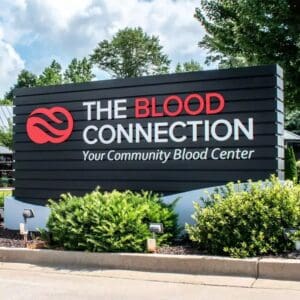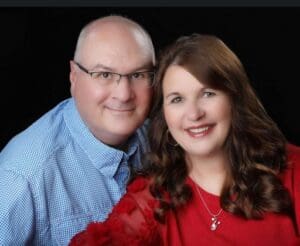BY: Melissa Higgs
If I were to choose one word to represent the Anderson region in the New Year, it would be: COMMUNITY. A community can be an incorporated area, such as Anderson, SC, or it can be a more nebulous entity where people come together for a common goal. The fellowship of a community is powerful and can result in great achievements. Anderson and its neighboring counties have seen many successes because of their strong community.
For example, The Blood Connection seeks to create a positive, encouraging culture where donations are given regularly. This effort allows donors to gain the satisfaction that they are doing something worthwhile at the same time it serves a vital purpose. It’s a win-win! The blood donor community looks out for one another, and a connection is formed between donors and recipients.

I used to fear giving blood. Who wants to be stuck by a needle? The experiences of another Oconee County resident, David Garland, who battles three blood disorders, made me realize the importance of this simple act. That little stick is nothing compared to what people who have blood diseases go through. It takes five hours to have a platelet treatment. Numerous blood donations are required to make it possible. Once you start these regular treatments, you can’t stop because your body doesn’t produce platelets like it once did. In addition, treatments are only available at certain locations at specific times, and if you are ill in any way, your treatment will be delayed. Blood donations must also match your blood type (for whole blood) and your antibodies. If the blood doesn’t match, the recipient’s body will reject it.
January is a particularly difficult month for the blood bank. People aren’t as healthy and stay home more. That is why special efforts are made to attract donors during January. The Blood Connection gives gift cards to donors. It may seem like you are taking when you are trying to give, but the gift cards are donated by sponsors who appreciate the opportunity to support their community. There are many ways to support someone who is giving blood, even if you can’t give yourself. David Garland’s wife, Tammy, pointed out to me that sometimes people will decide to give if you do something to make them more comfortable about the process. She suggested giving someone a ride to the donation center, sitting with them while they donate, or eating a good meal with them. (Donors should be hydrated and should eat well.) At one point, Tammy’s husband had to stay in the hospital for an extended time, and he required over 30 pints of blood. Tammy made a plea on social media that the blood bank’s supplies were low, and people lined up to give. That’s community!

David & Tammy Garland are two Oconee County residents who support the efforts of the Blood Connection. David must receive regular platelet transfusions due to several blood disorders that he battles. The community of Upstate blood donors has allowed him to survive.
Red blood cells, platelets, and plasma all have specific roles that are particularly critical for patients with disorders or on-going conditions. Consistent donations allow blood donation centers to have blood readily available for unexpected circumstances that arise. Most blood emergencies require immediate transfusions. Disasters and accidents may require large amounts of blood quickly, while the shelf life of red blood cells is limited to 42 days and the shelf life of platelets is only seven days.
It may seem odd to offer blood to or to receive blood from someone you don’t know. However, the guidelines that are in place ensure that the procedure is safe. I spoke with Ellen Kirtner, Partnerships & Media Coordinator for The Blood Connection, about the reasons people don’t donate blood. She explained, “People often don’t donate because no one has asked them to donate, or they don’t know they are eligible to donate.” The Blood Connection has published important donor information which can be accessed at this link. On the receiving end, transfusions are regulated so that the patients who are extremely sick are eventually able to thrive. Even fragile premature infants are given blood transfusions.
According to the Blood Connection blog post, “The Importance of Regular Blood Donations,” “you can save up to three lives with one donation.” If just a quarter of the residents in Anderson County (50,000) gave blood once, they could potentially save the equivalent of the entire population of Pickens County (135,000). The good news is that someone can give blood every eight weeks, or six times each year. According to the Blood Connection’s “General Information about Blood and Blood Donation,” only 3% of the US population donates blood, but 62% are eligible to donate. If all of the eligible donors gave, we could take care of the entire community’s needs.
The actual procedure for whole blood donations takes about 15 minutes, and you can check-in ahead of time online. That is not required, but you may have to wait if you don’t have an appointment. Here are a few tips:
- Drink plenty of water and eat a good meal before donating.
- Complete the online questionnaire the day of your donation and take a picture of the QR code you receive.
- Bring your photo ID and your blood donor card (if you have one).
- Follow the post-donation care instructions, so you have a good experience.
The Upstate Blood Connection office addresses can be found on the website. If you know of a business or organization that would like to host a blood drive, bloodmobiles are available.
The Anderson, Oconee, and Pickens region forms a community that supports over 400,000 people. Blood donated in Upstate SC is used in the Upstate. What a great way to give back to your neighbors! Residents who travel to and from work and school (college) may find themselves in a neighboring county. They may run errands and attend community events there. Life doesn’t happen within a single county’s boundaries. Inevitably, neighbors need health services that aren’t always available next door. The Blood Connection is available for those needs and to facilitate the spirit of community. You are part of the solution! You can give the “gift of life”!
(La información sobre donantes está disponible en español en este enlace.)



